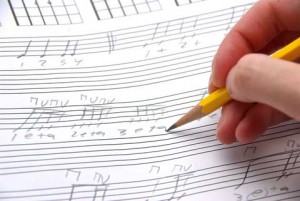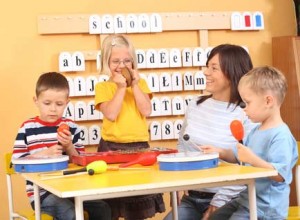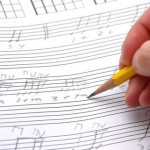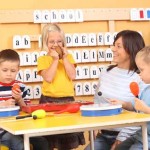Group Classes
Group class curriculum is designed for students who love to learn and work with others in a professional, fun, and encouraging environment. Through group activities, discussions, and assignments the students will have a chance to acquire the knowledge and share it with others. Each group class will end with a class demonstration, recital, or an exam to demonstrate the skills that were learned during the period of the class.
Music Theory
 Music Theory I:
Music Theory I:
12-weeks one hour per week course that will introduce the fundamental aspects of music theory through written, aural, and singing skills. During the duration of the class there will be assessments in the forms of quizzes and a final exam.
- Understand the meaning of pulse and meter
- Read and write musical notation
- Play notes on a piano keyboard
- Use scales, intervals, and chords
- Write a melody
Music Theory II:
12-weeks one hour per week course will further develop your background in music theory in the areas of music notation, harmony, analysis, part-writing , sight singing, and aural skills. During the duration of the class there will be assessments in the forms of quizzes and a final exam.
- Understand rhythmic anticipation and articulations
- Understand diatonic triads and seventh chords in major and harmonic minor
- Understand the II V I chord progression
- Understand the melodic and harmonic use of tensions
- Understand the blues form and style
Minnesota Music Teachers Association Theory Exam Prep Classes:
Level I: a 12 weeks prep theory course for Level I MMTA Theory Exam.
Level II: a 12 weeks prep theory course for Level II MMTA Theory Exam.
Level III: a 14 weeks prep theory course for Level III MMTA Theory Exam.
Level IV: a 16 weeks prep theory course for Level IV MMTA Theory Exam.
Level V: a 18 weeks prep theory course for Level V MMTA Theory Exam.
Level VI: a 20 weeks prep theory course for Level VI MMTA Theory Exam.
Level VII: a 22 weeks prep theory course for Level VII MMTA Theory Exam.
Level VIII: a 24 weeks prep theory course for Level VIII MMTA Theory Exam.
Advanced Placement (AP) Music Theory Prep Course:
This course is designed to prepare the students to take an Advanced Placement (AP) Theory Exam in May of each year. The curriculum of the course covers all the necessary requirements of the exam. The score of 4 and above on the test will give students college credits for the course. It is an excellent opportunity for students pursuing career in music or for students to get elective credits. The curriculum of the course covers all the necessary requirements of the exam.
Music History
 Music History of the Western World I: Medieval, Renaissance, and Baroque (Music in Western Civilization, Media Update by Wright).
Music History of the Western World I: Medieval, Renaissance, and Baroque (Music in Western Civilization, Media Update by Wright).
The 12 weeks one hour per week course will explore the development of Western European music from the Antiquity and Middle Ages, through the Renaissance and the Baroque periods. During the duration of the class there will be assessments in the forms of quizzes and a final exam.
- recognize the major composers of each era studied and a few of their principal works
- identify the representative musical forms and genres used during this time period
- identify the representative musical forms and genres used during this time period
- identify some of the technical aspects of music from each era studied such as melody, harmony, rhythm, musical instruments, and performance techniques
- associate the key aspects of culture, society, history, and geography that relate to music in Western Europe during the Antiquity, Middle Ages, Renaissance, and Baroque periods
Music History of the Western World II: Classical, Romantic, Modern
The 12 weeks one hour per week class will take you on a guided study of music in the Western World during the periods of time that encompass the Classical, Romantic, and 20th Century. During the duration of the class there will be assessments in the forms of quizzes and a final exam.
- identify the music of the major composers of the classical, romantic and 20th century
- identify the elements that define each of the major style periods from the Age of Enlightenment to the present
- recognize the representative musical forms and genres in the classical, romantic, and 20th century
- use terminology associated with each style period
- identify the key aspects of culture, society, history, and geography that relate to music in Western civilization over the last 250 years
Toddler and Pre-School Music Lessons

Early Childhood Music Classes
These classes will be fun and rewarding opportunity for your child to experience the joy of music and movement!
Through this curriculum students will develop a variety of skills and benefits through music including: social-emotional development, sensory awareness, fine motor movement, whole body movement, musical skills, cognition, and receptive language. The music curriculum that is used is based on an extensive survey of research related to the development of singing and movement skills in young children, as well as many years of practical experience sharing musical activities with the younger ages. It is this combination of a research-based curriculum, quality literature, and practical experience that makes the curriculum unique.
This class is also a great opportunity for children to learn how to interact with their peers and develop the fundamental skills needed to move into individual lessons in the future.
Level 1: Infant - Two
In this class, you and your child will experience and develop the foundations of musical skills through bounces, wiggles, tickles, tapping/clapping, simple songs, lullabies, and more! All of these things combined will ensure your child has built a foundation of music that is ready for the next level in the curriculum.
Level 2: Three - Five
In this class, your child will explore the gift of music through echo songs, call-and-response songs, simple songs, song tales, action songs, circle games, beat motion activities and more! This is the perfect class for any young child who is looking to sing, dance, play, and learn through music. Additionally, it will provide a musical foundation that will be needed to continue their musical journey in the future.
It is never too early to introduce your child to music education! Children are naturally inclined towards music and will soak up information like a sponge if introduced at an early age. Music education also assists with preschool and kindergarten readiness, language development, speech, and emotional well-being.
Art Classes
 Beginner class. Children age 4-6 y.o.
Beginner class. Children age 4-6 y.o.
Developing of motor skills, introduction to different media, learning color theory.
In our program variety of themed projects from sea life to 4 seasons, from fairy tale illustrations to space.
Beginner class. Children 7-9 y.o.
Option one – deeper introduction to different media and techniques. Variety of projects.
Beginner/advanced students – children/teenagers 9-12 y.o.
Introduction or continuous development of academic drawing and watercolor.




